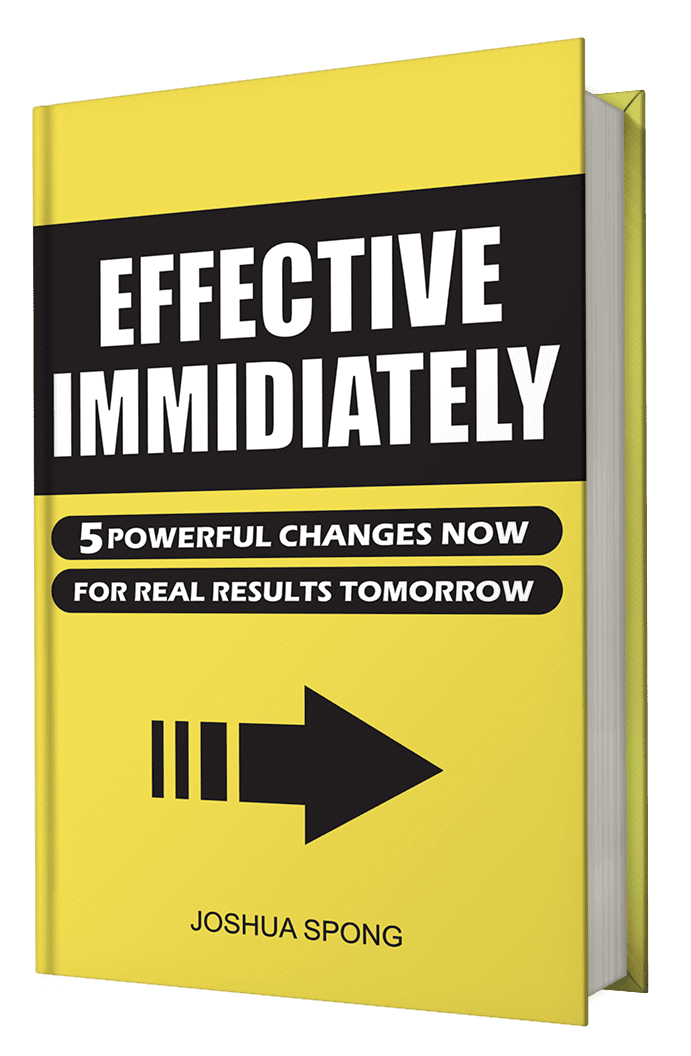
© 2025 Modern Mind Masters - All Rights Reserved
Key Points:

If I had a dollar for every mistaken claim that a person has too little willpower, I’d be lying on a beach in Hawaii right now. There is a huge misunderstanding regarding willpower and its use in overcoming difficult tasks and challenges.
Many think of it as a character trait – those with higher willpower are mentally stronger, and those who lack it are weak.
This is not the case. The truth is more complicated and is subject to many variables. In this article, we will dive into the science of what willpower is, why it cannot be relied upon at all times (even for the strongest of minds), and when and how to use it effectively. The truth may be more reassuring than you might think.
In 2011, 27 percent of respondents from a Stress in America survey reported that a lack of willpower presented the greatest barrier to change. Despite the majority not fully understanding the brain chemistry behind willpower (it is immensely complicated), we can certainly feel and measure its effects and identify when we are lacking it.
Defined as the “control exerted to do something or restrain impulses”, willpower is usually thought of as that extra bit of ‘oomph’ found deep within the mind that can be called upon to fight through tough moments where we are tempted to give in to our emotions.
We experience the use of willpower every day. For those trying to quit cigarettes, it is the effort spent using the conscious mind to say “No” when your body craves a smoke. For those trying to lose weight, it is the use of the conscious mind to order a salad instead of a burger.
Whatever the event, willpower can give us extreme mental resilience in moments of dire weakness. Unfortunately, willpower cannot always be relied upon consistently. Sometimes the temptation is too great even for the strongest of wills, as anyone (and everyone) who has given into their subconscious thoughts has experienced.
The largest misconception surrounding willpower is that it is an infinite resource. Because it is an intangible concept, it is often assumed to have intangible inputs. Scientific research over the past couple of decades, however, has started to debunk this myth, leading to the conclusion that willpower is a tangible and finite resource, and can therefore be depleted.
Ego depletion refers to the idea that willpower draws upon a limited pool of mental resources that can be expended (note we use the term “ego” here in the psychoanalytic sense, not the colloquial sense we most commonly associate with it). Like everything in the universe, it can all be boiled down to laws of energy conservation.
The successful use of willpower involves delaying the urge for immediate gratification. Our subconscious mind is driven by emotion and wants to feel good right now. It thinks only in the present and so cannot see that the pleasure of smoking now could lead to great danger.
It is our conscious mind, which is driven by logic and can look to the future, that reminds us of the long-term negative effects.
This is what makes the use of willpower necessary; the subconscious mind is five times stronger and quicker to react than the conscious mind. To overcome this power gap, we need energy.
The more enticing the immediate gratification, the more energy we need to overcome this difference. To help visualize this, we can think of willpower as a muscle; the heavier the weight the more energy our muscle needs to lift it.
If the weight is too heavy for our muscles, there will not be enough stored energy to lift it. Also like a muscle, willpower can be both strengthened and fatigued. In this case, we will need to repeatedly strengthen our muscles over time until they can store enough energy to lift the weight (and our mind can store enough energy to overcome the impulse for immediate gratification).
While the mind isn’t a muscle, it still is governed by the same principles of energy. We use mental energy when we show restraint by using the rational conscious mind over the emotional subconscious mind. And the greater the challenge to overcome, such as a 20-year smoking addiction, the greater the amount of energy we will need to draw upon to overcome it.
Many factors and variables affect willpower. Physical variables that affect the amount of mental energy available include blood sugar levels, heart rate, hormones, and age. We can assimilate this to muscles once again; when we are hungry we are likely to run a slower time than if we are properly fueled.
Our emotional state also plays a significant role. When trying something new or facing a difficult task it is easy to become overwhelmed, which lead to anxiety and frustration. This in turn creates a higher emotional hurdle that will require more energy to overcome.
Perhaps one of the most critical factors, however, is our motivation for performing a task. When a student needs to turn in an essay in three weeks, the urgency may not be there for the first two. The motivation to complete it is low and hence, so is our energy.
In the final week, however, the pressure of the looming deadline will incite emotions of panic and anxiety, providing enough energy to overcome the barrier (motivation can come from positive and negative sources).
Overcoming challenging and demanding goals, therefore, requires a motivation greater than the energy required for the task at hand. This energy can come from multiple sources, such as negative emotions (from failing the class) or positive emotions (from getting a good grade). People have different motivators, the key is finding what drives you.
Willpower is an incredibly powerful tool. This can be powerfully good or powerfully bad. To get on the right side of it, we need to understand willpower’s strengths and weaknesses and arm ourselves with the knowledge and tools needed to work alongside it.
We have already seen that willpower and ego-depletion are energy-related, i.e, we need a certain amount of mental energy to overcome our impulsive need for immediate gratification.
We therefore cannot rely upon willpower consistently as it is dependent on many factors that may not be present when you need it. But that doesn’t mean we should simply accept failure and move on. Instead, we need to rely upon an alternate system. This is where habits come in.
Where willpower relies on an intense burst of immediate energy stemming from the conscious mind, habits take advantage of our inherent tendency to strive for efficiency. When learning to drive a car, for example, every action requires focus and attention (energy) to ensure we perform the required actions correctly.
An experienced driver, however, does not need to think hard about these activities. I’m sure you’ve arrived home from your daily commute only to realize you cannot recall much of the journey because you were lost in through and daydreaming the entire time.
This is a result of the conscious mind automating these now easy actions and passing them to the subconscious parts, which frees up mental resources for more important tasks.
Habits are reliable because they take the emotion out of the activity and instead automate it in the prefrontal cortex.
In 2015, psychologists Brian Galla and Angela Duckworth published a paper in the Journal of Personality and Social Psychology, finding across six studies and more than 2,000 participants that people who are good at self-control also tend to have good habits — like exercising regularly, eating healthy, sleeping well, and studying.
“People who are good at self-control seem to be structuring their lives in a way to avoid having to make a self-control decision in the first place,” Galla explains. And structuring your life is a skill.
People who do the same activity, like running or meditating, at the same time each day, have an easier time accomplishing their goals, he says – not because of their willpower, but because the routine makes it easier. Those who appear to have greater willpower are actually most likely relying on habits built over many years.
Smokers wishing to quit are a prime example. Attempting to stop by going “cold turkey” is far more mentally taxing than gradually cutting cigarette count incrementally.
You may be able to avoid smoking altogether for those first few days using sheer willpower alone, but after a week or so the mind will fatigue and your mental energy levels drop dramatically. There is no chance to recoup the energy expended to delay immediate gratification, and hence failure is almost always inevitable.
This is why only 5 percent of smokers can quit cold turkey. The 5 percent who do it usually have a greater motivation, such as a recent stroke or diagnosis that gives them an intense motivation and a significant boost of energy.
Taking an incremental approach, combined with the use of medications, has been shown to improve quit rates by 50 to 70 percent. The greater use of habits as opposed to sheer willpower alone allows for a more reliable source of mental energy long-term.
You’ll Learn:

By now it should be apparent that willpower is best used in short bursts where immediate access to a large amount of energy is needed. Marathon runners are a good example.
At some point in their hours-long battle, runners will hit “the wall” – the point where their subconscious mind is screaming for them to stop and avoid any further discomfort. To delay this immediate need for gratification, they will have to dig deep and use the goal of completing the race (and how satisfied they will feel once they complete it) as their motivation and energy source.
With the mind sharpened and their focus narrowed, both brain and body are focused solely on keeping one foot moving in front of the other.
This is where willpower should be called upon; in these last ditched, short-lived do-or-die moments driven by raw emotion. A runner may be able to do this periodically, perhaps once a month, but to do this every day is almost impossible – there is not enough time for their mental energy to recharge.
On a related note, the preparatory work needed to complete a marathon requires a strong habit of consistent training. Participants will have to dedicate time to build-up to the challenge, perhaps by running 5 miles for the first week, then 10 miles for the second week, until they eventually build-up to their 26-mile goal.
A successful athlete understands that willpower is a powerful resource that should be used sparingly. It is not sustainable day after day, so habits are needed to ensure consistency, which is the backbone of any goal.
So now we understand what willpower is, how it is dependent on energy, and how its constant use is unsustainable. We also know that willpower is often misused where habits should be applied, and that it is the correct application of both willpower and habits that lead to success.
The last thing that remains is how we can boost our willpower to give us as much energy as we can muster to overcome our subconscious temptation to give-in.
Ensuring we have enough sleep should be our priority. When we sleep, our brain reorganizes and recharges itself, and performs physical maintenance by removing toxic waste byproducts which accumulate through regular use during the day. When we undersleep, and the brain is unable to perform its full maintenance cycles, less energy will be available for use.
The second priority is ensuring we make time to relax and unwind. We deplete willpower when we force ourselves to do something against what we would like to do, such as working late one evening instead of watching TV.
It therefore stands that we recharge when we allow ourselves to indulge in these impulses, such as dedicating time to watch TV where we can fully unwind and relax. We cannot indulge these urges all the time, however, (we need to get some work done), but a balance must be struck to ensure we recharge the energy we expend.
Lastly, look for strong motivators. One way to boost mental energy is to visualize the reward. If you are struggling to stop smoking, write out exactly why you want to stop, whether it be for you, your children, or your grandchildren.
If you want to find the energy to complete your essay, create a reward that will motivate you, such as permitting yourself to play video games for the rest of the evening once complete. Clarifying and precisely defining your motivation will help visualize your endpoint and give that extra bit of mental energy needed to break through the wall.
The key takeaway from this article is to understand the different roles willpower and habits play towards achieving our goals. Willpower is an excellent tool to immediately give access to high levels of mental energy. It is quick to act and extremely powerful but restricted by the time needed to recharge, and therefore cannot be relied upon consistently.
Habits, on the other hand, are the yin to willpower’s yang – although they can take months or years to develop, and are not as powerful in the heat of the moment, they allow for reliable commitment towards goals by removing much of the emotion associated with difficult tasks.
For those who wish to finally stick to that diet that has been eluding them for so long, first build your habits, such as a diet plan and exercise routine. Gradually build up to it; do not attempt to wake up at 5 am every day to hit the gym; you will fail.
Start with one or two days a week and build-up from there. Once these habits start to become automatic, so too will the results. You may still have to rely on willpower to get you through those particularly tough times; perhaps a bad day at work urges you to demolish that tub of ice cream, but your habits will soon kick back in while your willpower recharges.
It is this appropriate use of both willpower and habits that, when used in synergy, turn us into highly productive machines.
Let me know what you think down below in the comments!
© 2025 Modern Mind Masters - All Rights Reserved
You’ll Learn:
Effective Immediately: 5 Powerful Changes Now, To Improve Your Life Tomorrow.
Click the purple button and we’ll email you your free copy.